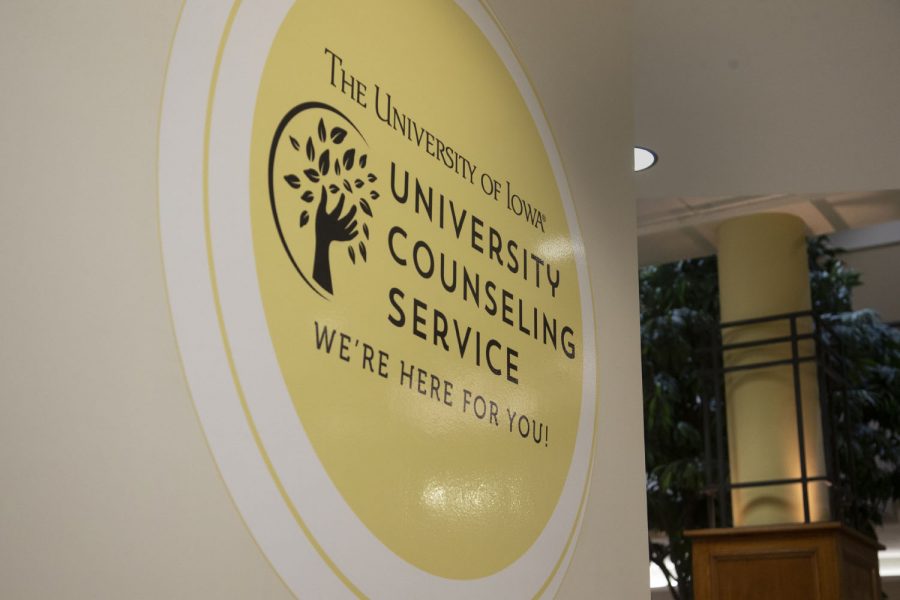Opinion | Teach children mindfulness
In the wake of the pandemic, one fatal flaw in our school systems’ curriculum is showing — we don’t know how to cope when we should.
The University Counseling Services office is seen in the Old Capital Mall on Monday, February 17, 2020.
February 9, 2021
Americans have been locked inside for almost a year now — isolated from each other and their social circles. It’s been an incredibly trying time for everyone and has shown that we’ve got serious cracks in how we handle ourselves. For everyone’s sake, we need to start teaching about how to take care of ourselves mentally in schools.
Gen Z is the loneliest generation alive, with chronic anxiety and depression issues that aren’t going away anytime soon. It was here prior to the pandemic, and it will be so after. If we want to keep the future of the nation healthy, we need to start teaching kids mindfulness.
America was already in a mental health crisis before this pandemic began — the current world events have only exacerbated these issues. A 2018 study by the Cohen Veterans Network and the National Council for Behavioral Health showed that 74 percent of Americans do not have access to proper mental health care.
The Daily Iowan has already run plenty of stories regarding mental health: scarce resources; advice tips; how people felt after the derecho; what schools are planning on doing during the pandemic. But all of this isn’t enough.
Short columns from mental health experts and open digital offices for teachers might help in the short-term, but the consequences we’ve seen are from a long-standing lack of institutional care about mental health.
One way we might be able to help ourselves, and especially young children, is mindfulness.
At its core, mindfulness is simply the practice of being aware of yourself — of how you’re feeling, of your surroundings, and of your thoughts. It’s a way of being able to identify what you’re experiencing and accept it, rather than suppressing and ignoring. Effectively, it’s meditation without the spiritual guidance side of things.
While it may sound like some weird obscure hoopla, mindfulness as a practice has proven to work. According to a meta-analysis performed by the journal of psychosomatic research, mindfulness-based stress reduction is shown to help patients cope with clinical and non-clinical problems. But it’s also shown to help with job satisfaction, emotional exhaustion, and emotion regulation.
All of which sounds like something everyone needs at this moment.
And it’s not as though this hasn’t been done before.
The University of Iowa already uses mindfulness-based stress reduction through in student wellness and hospital programs. As far as K-12 goes, schools in Portland, Oregon are currently adopting these courses with the Peace in Mind organization.
These are just two examples of mindfulness in action. While it wouldn’t be a cure-all for the myriad mental health issues plaguing America, it would be a good preventative measure to ensure that it doesn’t get any worse from here on out and an excellent tool to help people presently experiencing problems.
As someone who fondly remembers high school as a time when I suppressed many emotions and drowned discomforts in video games, I look back and wish something like this was there in school; something to help teach me how to deal with my emotions, rather than an expanded sphere of calculus that I have never used since taking my final tests.
If we want our kids to be prepared for what the “real world” has to offer, then we need to not only teach them about what they need to know, but how to process what they know.
Columns reflect the opinions of the authors and are not necessarily those of the Editorial Board, The Daily Iowan, or other organizations in which the author may be involved.
















